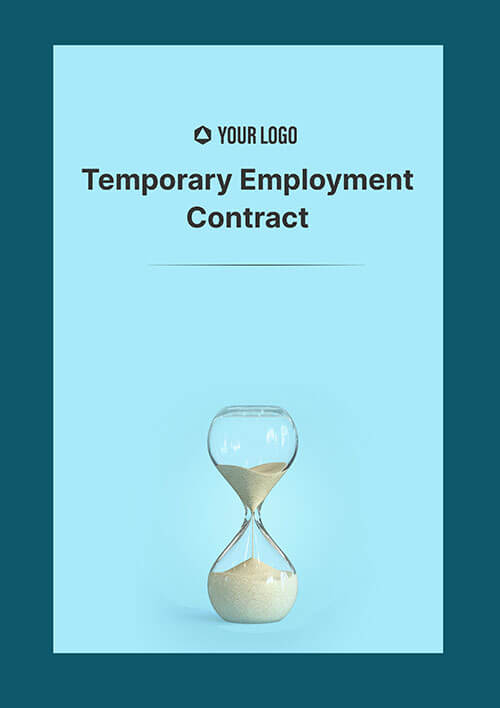Empty space
1x
2x
3x

Royalty Contract
Empty space
1x
2x
3x
Prepared for:
[Grantee's Name]
Prepared by:
[Grantor's Name]
Royalty Contract
Royalty Contract
This Royalty Contract (hereinafter referred to as "Contract") is made effective on [Date]
By and Between
[Grantor's Name] (hereinafter referred to as "Grantor") residing at [Grantor's Address], and,
[Grantee's Name] (hereinafter referred to as the “Grantee”), residing at [Grantee's Address].
The Grantor and the Grantee are collectively referred to as “Parties” and individually as "Party".
WHEREAS the Grantor owns and has the rights to grant any interest in its intellectual property (copyrights, patents, and other intellectual properties) (hereinafter referred to as the "Property"),
AND WHEREAS the Grantee desires to use the Grantor's Property as per the terms and conditions as laid down in this Contract.
NOW, THEREFORE, in consideration of the covenants expressed herein, both the parties agree with the below-mentioned terms and conditions.
Empty space
1x
2x
3x
Terms and Conditions
Terms and Conditions
1. Rights of Granting
1. Rights of Granting
The Grantor hereby grants the Grantee all the rights and licenses as per the law of the [State] and the territories to use the property for a period of [number of years] years.
2. Grantor's Representation and Warranties
2. Grantor's Representation and Warranties
- The Grantor represents and warrants that they own the property and have all the rights to grant permission to use the property for which the Grantor exercise the options hereunder, and have the rights to enter into a contract.
- By signing this contract, the Grantor shall provide all the relevant documents to the Grantee that is necessary for the utilization of property.
- The Grantor shall indemnify and hold the Grantee harmless for any and all losses, claims, and damage resulting from the breach of the representation and warranties.
3. Grantee's Representation and Warranties
3. Grantee's Representation and Warranties
- From the effective date of this contract, the Grantee shall maintain the Property in confidence, exercise the same degree of care that the Grantee exercises with their own proprietary information.
- If the Grantee becomes aware of any act which may require compromising confidentiality with regard to property, such as a Court order that requires all the documents of the property to be produced, the Grantee shall notify Grantor thereof and consult with the Grantor regarding such compromises.
- To the extent that Grantee's negligence results in personal injury or property damage hereunder, the Grantee indemnifies Grantor and shall hold harmless for any and all injuries, losses, damages, and claims in the course of utilizing the property.
4. Royalty
4. Royalty
In consideration of the rights and licenses granted by the Grantor, the Grantee agrees to pay Grantor an amount of $[0.00] at the time of execution of this contract. Further consideration of the rights and licenses granted by the Grantor, the Grantee agrees to pay the Grantor [00.00]% of the net profits, capitalized at the end of each calendar quarter.
5. Profits
5. Profits
Profits here means that the total revenue received by the Grantee by using the property, other than:
- Manufacturing and marketing expenses, which involves commission payable to a third party.
- Direct and administrative expenses, excluding taxes and
- All other payables are excluded by written approval of the Grantor.
6. Royalty Payments
6. Royalty Payments
- The Grantee shall keep an accurate account of the revenue generated under the granted rights hereunder and shall write a statement to the Grantor at the end of every calendar month during the term of the Contract.
- The payment shall be made to [Grantor's Name], [Grantor's Address] through [Payment Mode] under this contract.
- In the event the Grantee fails to provide the statement to the Grantor that should be subsequently paid within [number of days] days, the Grantee shall pay a late fee of $[0.00]
7. Term and Termination
7. Term and Termination
The term of this contract shall begin from [Date] and will remain effective till [End Date]. The Grantee may terminate this contract, providing written notice to Grantor thereof if:
- A petition of bankruptcy or insolvency law is filed by or against the Grantor, or
- The Grantor commits a material breach under the contract and fails to correct it.
The grantor or grantee may terminate this contract before the agreed termination time by providing written notice of [Number of days] days.
8. Indemnification
8. Indemnification
Except for any breach, neither party shall be liable for any claims of any personal injury and property damage suffered by the other party or third party, resulting from either Party's activities under this contract.
9. Arbitration
9. Arbitration
In the event of any dispute arising in and out of this contract between the Parties, it shall be resolved by Arbitration. There shall be [Number of Arbitrators] Arbitrators which shall be appointed by [Party Name]. The venue of Arbitration shall be [Venue/Location of Arbitration] and seat shall be [State of Seat]. The Arbitrators' decision shall be final and will be binding on both the Parties.
10. Miscellaneous
10. Miscellaneous
- Governing Law: The contract shall be construed in accordance with the laws of the [State].
- Severability: In the event that any provision in this Contract is held to be invalid, illegal, or unenforceable in any respect, such invalidity, illegality or unenforceability will not affect any other provisions of this Contract and all other provisions will remain in full force and effect.
- Assignment: This contract shall not be assigned to any third party without the prior written consent of either party.
- Notice: Any notice permitted under this contract shall be given sufficiently if delivered in person or certified through email. A return receipt is requested to the address outlined in the opening paragraph of the contract.
- Amendment: No modification or waiver of the provisions of this Contract shall be valid or binding on either Party unless in writing and signed by both Parties.
Acceptance and Signature
Acceptance and Signature
IN WITNESS WHEREOF, both parties agree to the Terms and Conditions of the Royalty Contract, and provide their acceptance by signing below:
[Grantor's Name]
[Grantee's Name]
Signature
Assign signer 1
Name
Assign signer 1
Date
Assign signer 1
Signature
Assign signer 2
Name
Assign signer 2
Date
Assign signer 2
Empty space
1x
2x
3x
DISCLAIMER: Revvsales, Inc is not a law firm. The content provided herein is for general information purposes only, and does not constitute legal advice. Revvsales, Inc and its partners make no representation or warranty of any kind, express or implied, regarding the accuracy, adequacy, validity, reliability, availability, or completeness of any information mentioned hereunder. The use or reliance of any information contained herein is for your personal use and solely at your own risk. You agree to fully release and indemnify Revvsales, Inc from any liability associated with the use of this content. You are advised to obtain independent legal advice before taking or refraining from any action on the basis of the content provided here.
DISCLAIMER: Revvsales, Inc is not a law firm. The content provided herein is for general information purposes only, and does not constitute legal advice. Revvsales, Inc and its partners make no representation or warranty of any kind, express or implied, regarding the accuracy, adequacy, validity, reliability, availability, or completeness of any information mentioned hereunder. The use or reliance of any information contained herein is for your personal use and solely at your own risk. You agree to fully release and indemnify Revvsales, Inc from any liability associated with the use of this content. You are advised to obtain independent legal advice before taking or refraining from any action on the basis of the content provided here.















